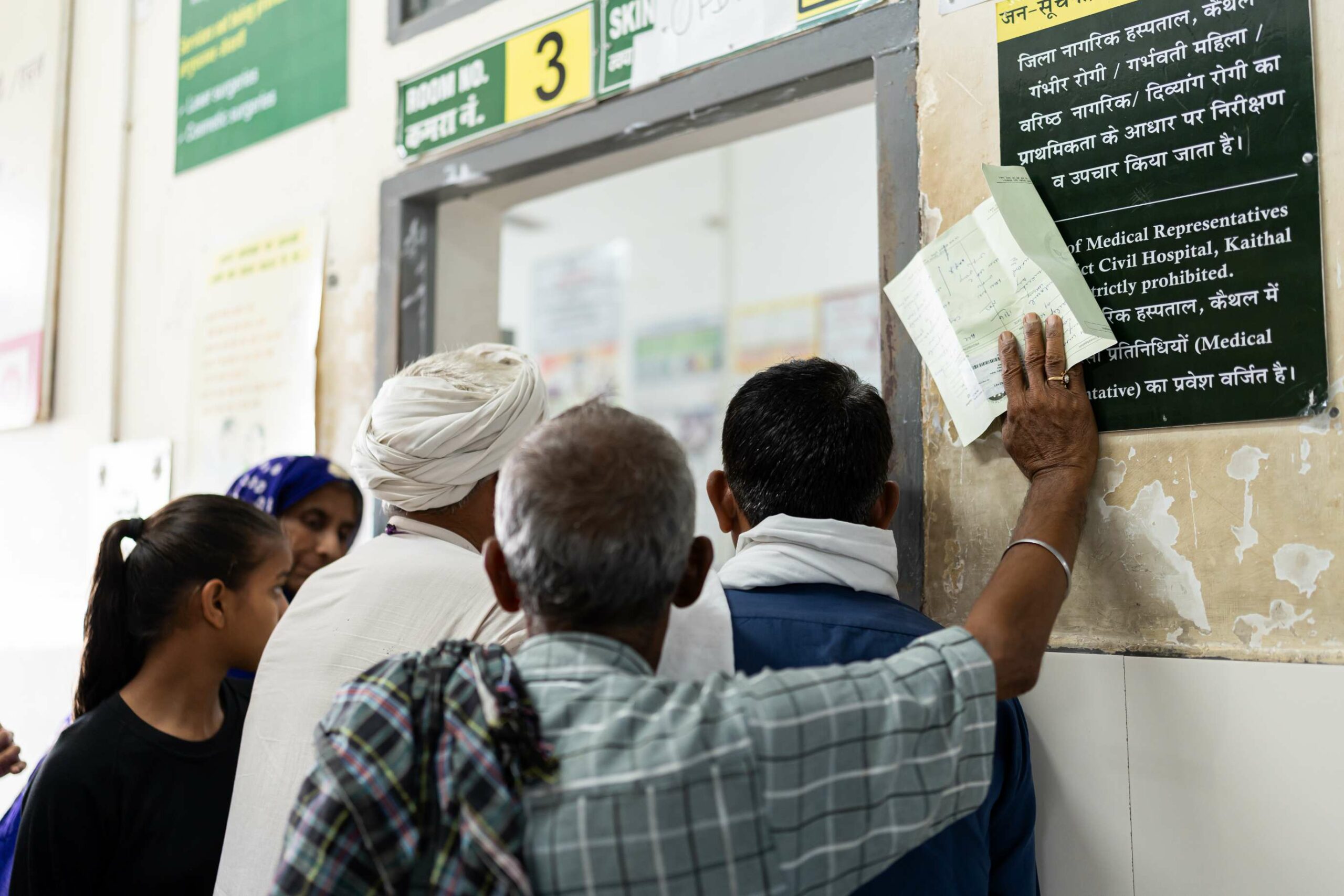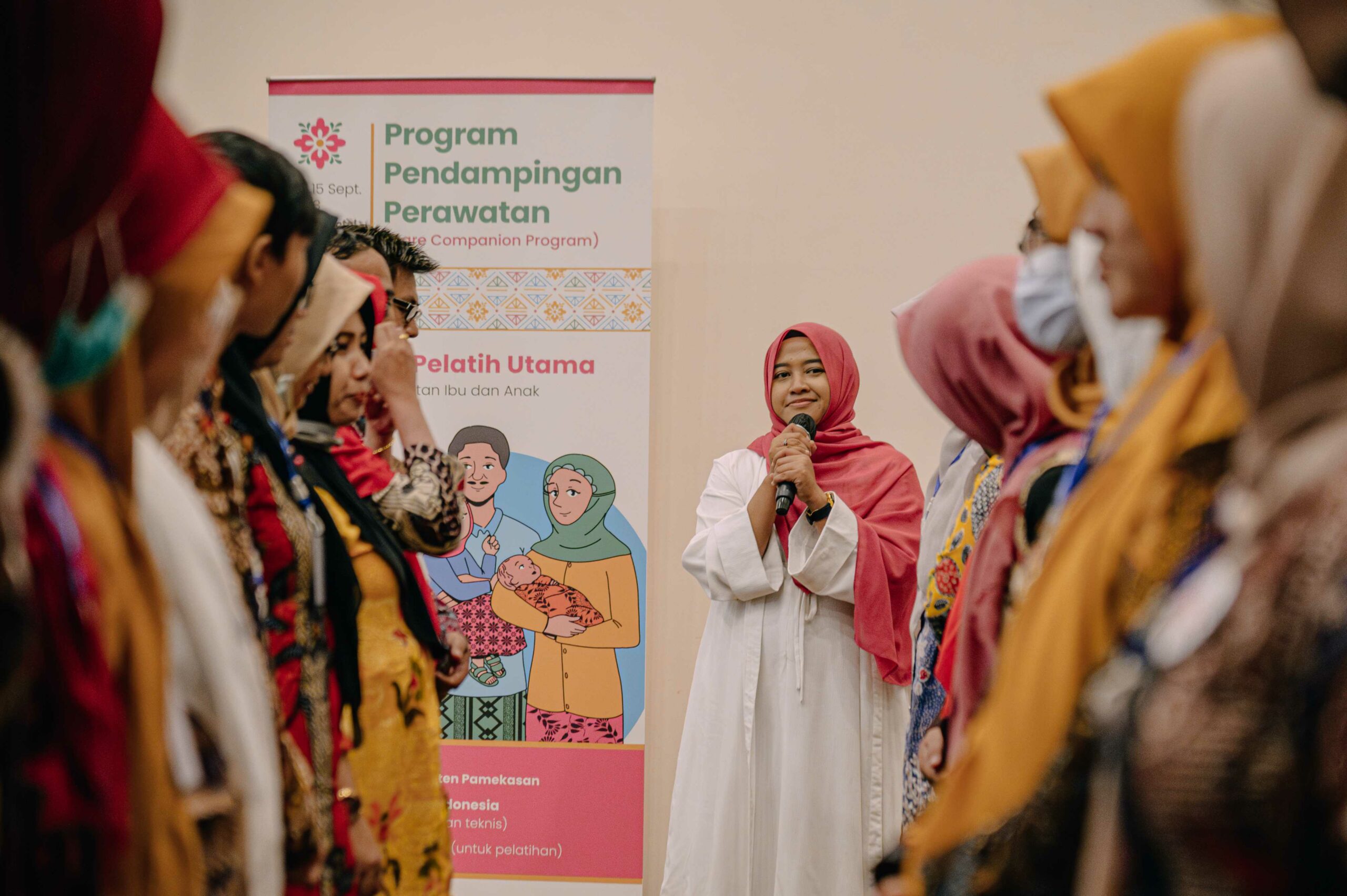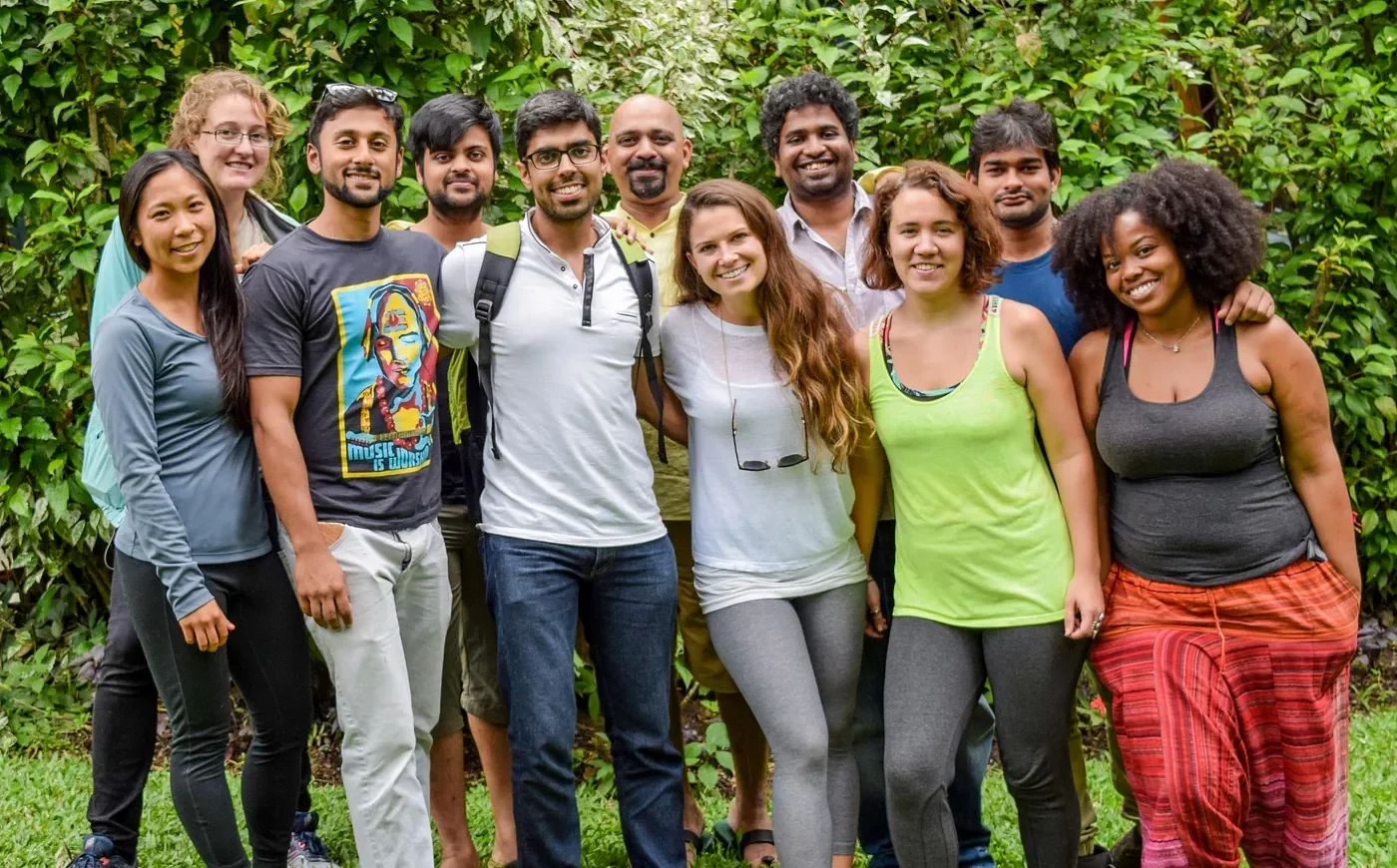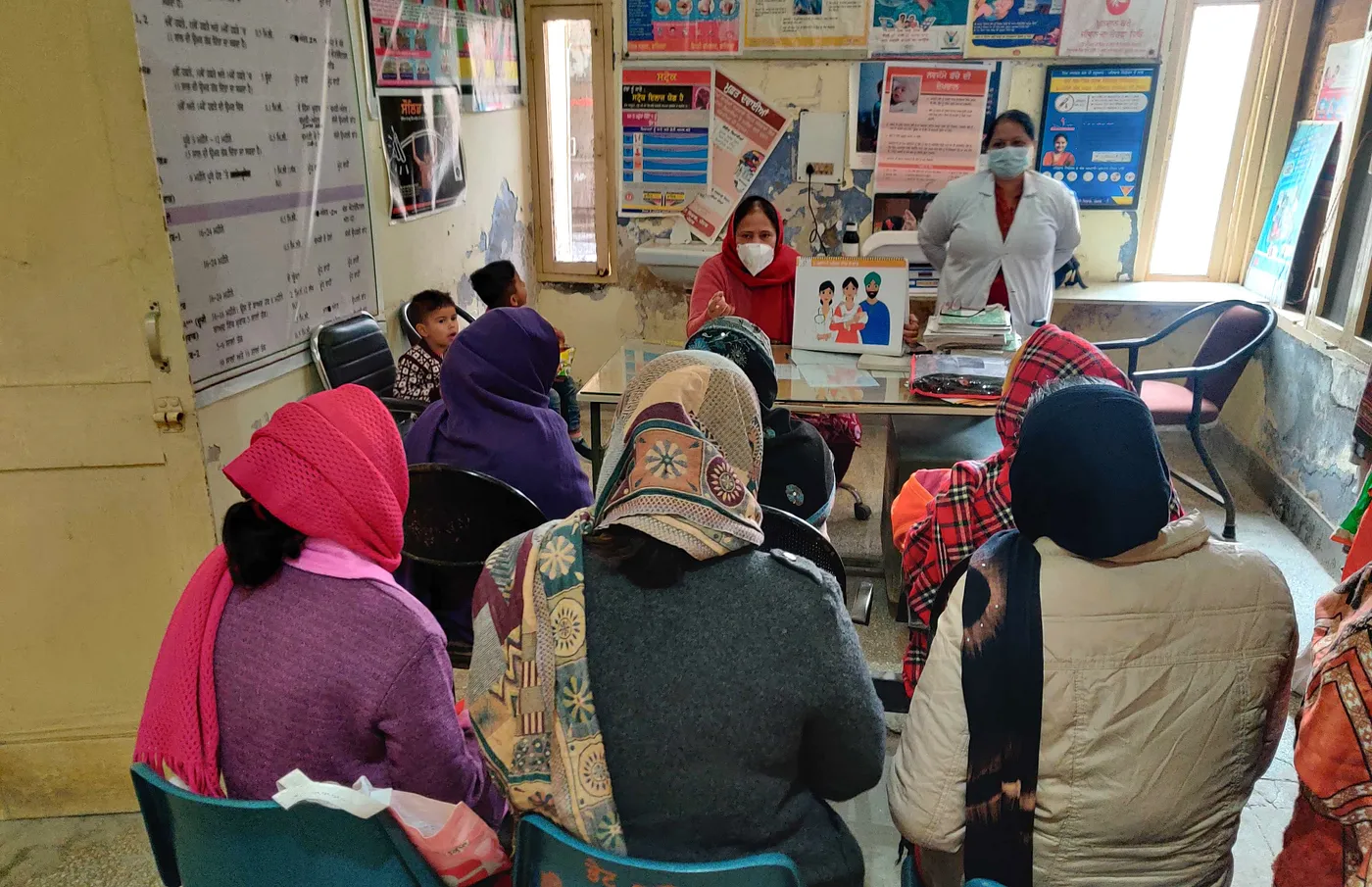

“This is our duty”
Perspectives on COVID-19 from healthcare workers in Punjab.
“One day when I was climbing stairs while wearing all the protective equipment, I felt so suffocated and even thought that I would have a heart attack at that very moment. As a precautionary measure, I immediately came down, stood under the fan, removed all my shields, took a deep breath and boosted myself morally — telling myself that everything will be fine — and later continued my duty.”
One thing that has remained constant throughout the entire pandemic is the dedication of frontline healthcare workers. In the early days of COVID-19, the Government of Punjab declared a complete lockdown and introduced early interventions such as a Chief Minister Relief Fund, a dedicated mobile app with a live COVID-19 dashboard, customized treatment to ensure affordability across communities, and converting colleges and schools into quarantine centers. Perhaps most notably, they launched ‘Mission Fateh’ — part public service announcement, part music video message of resilience from Bollywood megastars, musicians, and sports legends to follow guidelines in order to stop the spread of the virus.
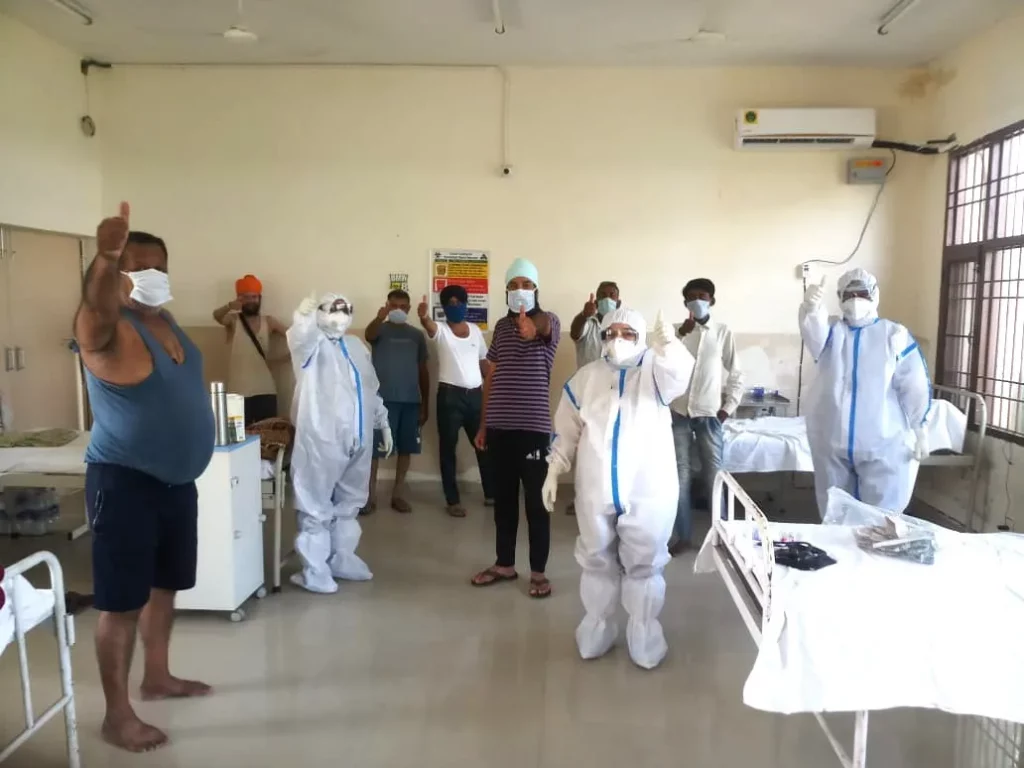
While cricketers and TikTok stars are all critical pieces to encouraging the public to follow public health guidelines, we know that the true heroes are healthcare workers. As cases rose and healthcare workers carried on with their duties, we had a chance to speak with some of our partners in Punjab about what drives them to work nonstop with determination and passion, battling against all odds.
Our conversations revealed a new series of concerns and anxieties, paired with a deep rooted commitment to their profession and the patients they serve.
1. Isolation and precautions
On reaching home from work, it is challenging for healthcare workers to directly meet their families. Many have to go through their backyards, or have started using other ways to enter their homes, so that they can bathe first, and protect their families from infection.
“I go home and enter through the backyard since the wash room is located there. First, I wash my hands and take a bath. I remove my footwear outside the house and I avoid direct contact with my family.”
2. Stress and mental health
Healthcare workers have been under immense stress related to their work, worrying about their families, changing their eating schedules, and working much longer hours. Stress has become a new part of their daily lives, with no end in sight.
“I reside in a PG (paying guest accommodation) and have not been able to go to meet my family for the past two months due to so many unexpected circumstances, such as the lockdown. My duty shifted to the isolation ward from the general surgical ward because of which I refrained from going to my parents to save them from any harm.”
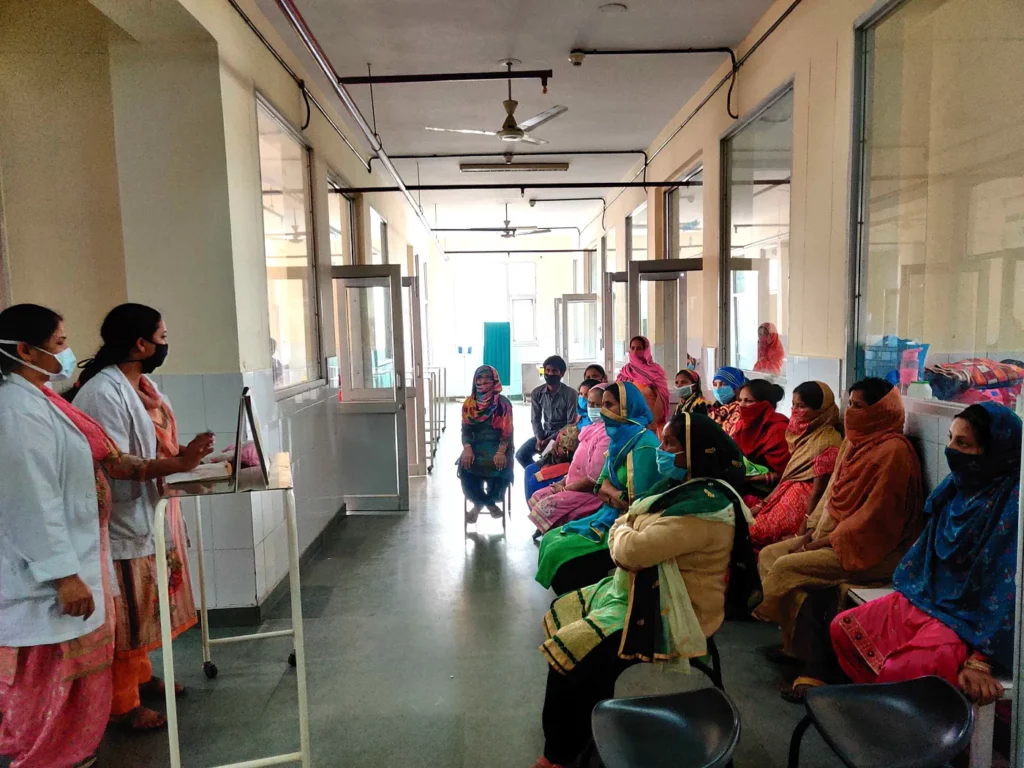
“We feel kind of anxious about our family members, worrying that they may get infected from us. I’m feeling the mental pressure.”
“I tell the elders and children to not go out of the house. Since we do not know how long COVID-19 is going to be around, I instruct my children not to meet or shake hands with anyone. I too avoid kissing and hugging my children.”
3. Caring for patients
Despite all the challenges healthcare workers are facing in their day to day lives, empathy and patience towards their patients remains a priority.
“Patients feel distressed, as they have been staying here for the past one month. At least four nurses go to the isolation ward in a day, to inquire about their health, to talk to them, and also provide them food.”
Hospital staff are also trying to keep themselves calm and composed as they understand the patient’s frustration and anguish of being apart from their loved ones for so long. The staff provide entertainment in the form of carrom boards, books, Ludo, and playing cards — all the while maintaining a safe distance while playing.
“Sometimes the patients release their frustration on us. But that’s fine, anyone will get bored of eating the same food, staying in the hospital, and not meeting their family for so long. We very politely console them and never use harsh language.”
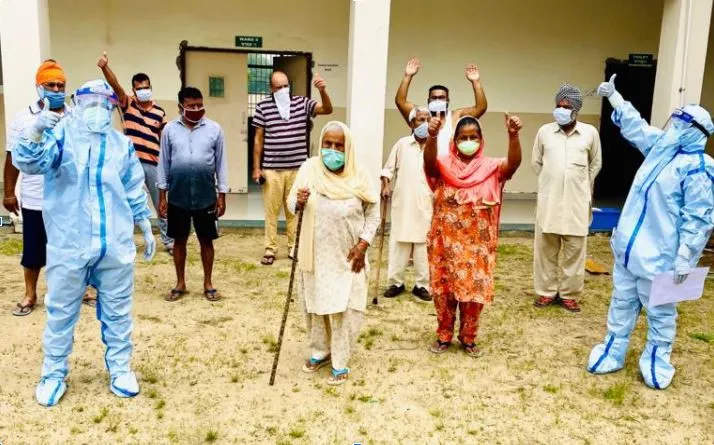
What keeps healthcare workers going?
Many staff shared what kept them motivated to go about their work, despite the numerous challenges they face. They mentioned their belief in God and the strength they receive from their faith, which allows them to work with dedication everyday.
“I feel whatever has to happen will happen for sure. I do not think anything negative; I have left everything to God. This is our duty and we are lucky to have this duty that we are helping so many people.”
“It is by God’s grace that we have got this job where we have one place to go and perform our duty and then come back — unlike army and police personnel who do not have designated duty places.”
Wherever needed, healthcare workers have risen to the occasion, making up for the lack of infrastructure with their diligence. Their extraordinary dedication has been on display for us all to see — something that we can all reciprocate by being responsible, following COVID-19 guidelines and maintaining physical distancing as much as possible.
We may never be able to repay the work of healthcare workers world over, but at Noora Health, we know we can’t live without them. We are also extremely grateful to the State Health Ministry, the Directorate of Health Service, its staffers and Assistant Director, Dr. Baljit Kaur — all of whom have come together to tirelessly support and constantly encourage the healthcare workers of Punjab through the pandemic.
Dr. Bhanu Pratap Yadav, Dr. Divya Mishra, Dr. Huma Sulaiman, and Shailendra Tomar contributed to this article.
This article was originally published on Apr 7, 2021 and edited and updated in July 2023.

